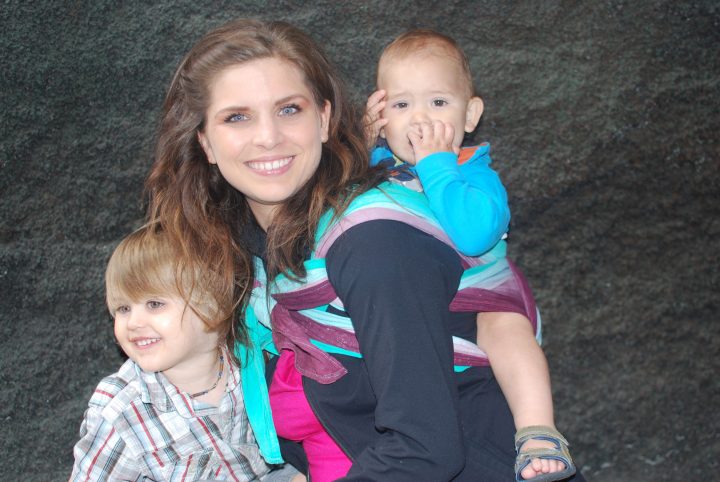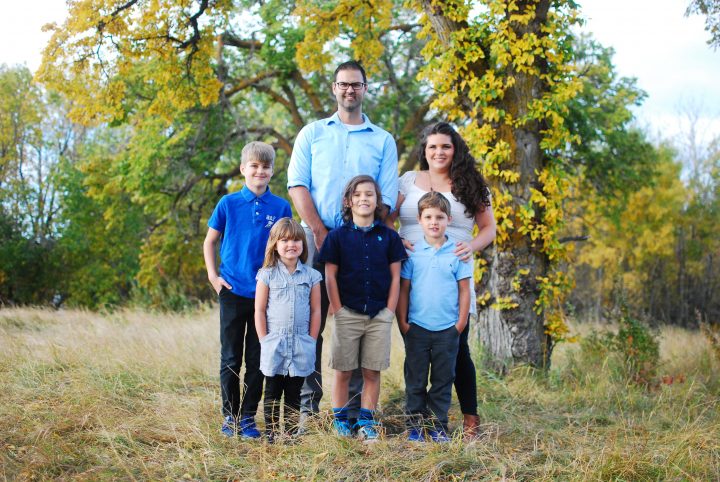On the outside, Sarah Wallace looked like a supermom. Just five months after giving birth to her second son, she was cloth-diapering, training for a half-marathon and attending mom and baby activities. On the inside, she felt “half-dead.”

“I thought I was just really sucking as a parent. Honestly, that’s the only thing I can think of to describe it,” Wallace said. “It felt like it needed to be that Instagram/Pinterest perfect. Like I had to do all of the activities and I had to have all of the stuff and do everything perfectly.
“I had to do everything that was right and there was no easy way to do things. If I took the easy way out then I was… failing.”
Wallace threw herself into running and fundraising to avoid sitting with those feelings and seeking support to manage them. Trying to overcompensate for her perceived failures as a mother led to anger. Day to day, she found herself snapping over trivial things, such as running late or dealing with a toddler’s refusal to put on shoes or mittens.
By the time her baby was nearing 10 months, the undiagnosed postpartum depression and anxiety was manifesting as suicide ideation.

Get weekly health news
“I would start to feel like I should just drive into traffic and what would it feel like — or if it would be faster to drive into traffic or drive into the river. Which one would hurt more. Which one would be faster. Would you die faster, for example.”
After a group of close friends reached out to her with concerns about her behaviour, Wallace made a doctor’s appointment and found support. Eight years later, she is working as a full-spectrum doula to help pregnant women navigate the prenatal and postpartum period.
READ MORE: New fathers should be screened for postpartum depression, researchers say
Data out of the University of Calgary suggests more new mothers are struggling with postpartum anxiety and depression in the first three months after giving birth than prior to the pandemic.
Researchers are tracking 8,000 pregnant women from every Canadian province and territory to determine how COVID-19 is affecting their mental health. According to researcher Gerald Giesbrecht, so far 313 women have given birth and reported on their wellbeing postpartum.
“During pre-COVID we might see up to 13 or even 15 per cent become depressed in the postpartum period. Now we are seeing the rates are about 21 per cent in our cohort,” said Giesbrecht, who is an associate professor from the University of Calgary’s Department of Pediatrics and Community Health Sciences.
“What impresses me most about it is the suffering that pregnant women and postpartum women are experiencing. As a developmental psychologist I’m concerned about how this will translate into effects for the baby.”
READ MORE: Post-partum euphoria is more than just feeling happy — experts say it can be a ‘lethal condition’
Wallace hopes the COVID-19 health restrictions don’t prevent struggling parents from seeking help, whether that’s through friends, a doula, a therapist or medical professional.
“There’s ways to do that that you can be safe in terms of COVID and still get the help you need so that your heart is safe,” Wallace said. “Because COVID will end sometime, but you will always have your heart.”
For services or supports for postpartum depression or anxiety in Alberta, call 811 or visit Healthy Parents, Healthy Children.
If you are having suicidal thoughts and need to speak to someone right away, call the Mental Health Help Line at 1-877-303-2642, available 24 hours a day, 7 days a week.












Comments
Want to discuss? Please read our Commenting Policy first.